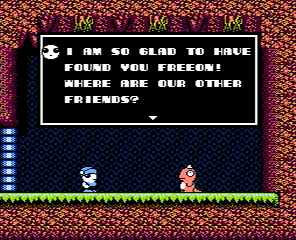Yeah, spoilers. And stuff.
Oblivion.
It's very pretty, but not very good. The story is poorly paced, awkwardly revealed and thoroughly confusing. It also has Tom Cruise in.
The story, such as it is, is set in a post-apocalyptic future where the Earth has been ravaged by the final blow of a war with an alien force. We "won", having scorched the planet with atomic hellfire, repelling the aliens but leaving our planet barely habitable. The surviving humans fled to a bizarre pyramid-shaped space station in orbit, leaving a few of the invaders scattered about, doing what they can to survive on the surface. Meanwhile, the future of humanity is assured by giant machines that float over the oceans, sucking up the water to use, ostensibly, as fuel for a trip to the nearest habitable rock -- Saturn's moon of Titan.
Tom Cruise is Jack Harper, a technician who lives in a peculiar house on top of a pencil-thin tower with a vacuous British redhead that operates a talking table all day long. His job is to fly his mechanical dragonfly down to the surface to repair security drones that patrol the ocean-sucking machinery, keeping it safe from the aliens.
From here, it all goes to shit. Big spoilers to follow, for more than one film. I don't care. I like to live dangerously.
Tom ultimately discovers that he's a clone, apparently designed after one of the only two surviving humans, and his purpose is to continue to maintain the technology of the "humans" aboard the pyramid in the sky, which is not manned by humans at all, but by the alien invaders. Alien invaders who aren't harvesting the oceans for fusion fuel for a trip to Saturn, but simply raping the planet of all its remaining natural resources.
So, Tom's a clone. That sounds familiar. How did he find out he's a clone? He discovered a duplicate of himself, doing the same job he should be doing. Still sounds familiar. Why does it sound familiar? Oh, yeah. Moon. Sam Rockwell did it so much better.
After this reveal, the rest of the film falls roughly into place, following two additional reveals that really didn't take me by surprise. I have to admit, I was a bit taken aback by how blatantly the key plot point from Moon was "borrowed", and I lost a bit of enthusiasm for Oblivion's remaining twists. The biggest plot hole still revolves around the clones-of-Cruise idea, though.
The original Jack, imaginatively labeled "Jack 49", meets up with a duplicate of himself in the middle of the desert, attempting to repair a drone. They proceed to beat the crap out of each other, ending with Jack 49's revived wife being shot, and Jack 52 (the other Jack) being crudely tied up and left in the desert while 49 rushes the shot wife to a nearby cave and steals 52's helicopter-dragonfly to go get her some magical fixer-upper drugs from 52's pole house. This is all fine and dandy, except:
Jack 49 apparently borrows Jack 52's clothing (they have numbers and colour coding on them) in order to convince Jack 52's own version of the cranky British redhead that he's her colleague and not some clone of him. He then somehow swaps back to his original 49 uniform before the story continues, which is fine. Well, sort of. It'd be fine if Jack 52 himself didn't up and disappear entirely until the unsatisfying end of the film. I don't know if the changing number on the jacket is a continuity error or an intended thing, or what. If it is a continuity error, it's a fatal error because the story relies on very subtle hints about what's going on, and the number and colour of Jack's uniform is pretty significant.
Jack 49 also steals Jack 52's helicopter-dragonfly for the remainder of the film, and proceeds to fly it -- while wearing his 49 regalia, again -- into the alien mothership masquerading as a human space station (did I mention spoilers?). Do they not notice that he's a 49, and it's a 52? Actually, I suppose they don't. Their scanning systems can't even tell the difference between a frozen Russian woman and a frozen black man.
Also, the alien mothership? Independence Day. Big triangular doorway. Massive internal corridor with foggy crap in it. All it needs is an army of marching insect creatures on the floor.
Final verdict: Very pretty, a bit boring, and very confusing. Taking a simple, mysterious story and trying to make it more mysterious by going all David Lynch on it is bad decision. Just tell the story. And maintain your continuity. Please.
 Jan de Bont's Speed (1994) is a pretty stock-standard action movie. It has a pretty clever plot. It involves Keanu Reeves and a bus. You've probably seen it.
What you may not have noticed, however, is the worst throwaway line in movie history.
Jan de Bont's Speed (1994) is a pretty stock-standard action movie. It has a pretty clever plot. It involves Keanu Reeves and a bus. You've probably seen it.
What you may not have noticed, however, is the worst throwaway line in movie history.















